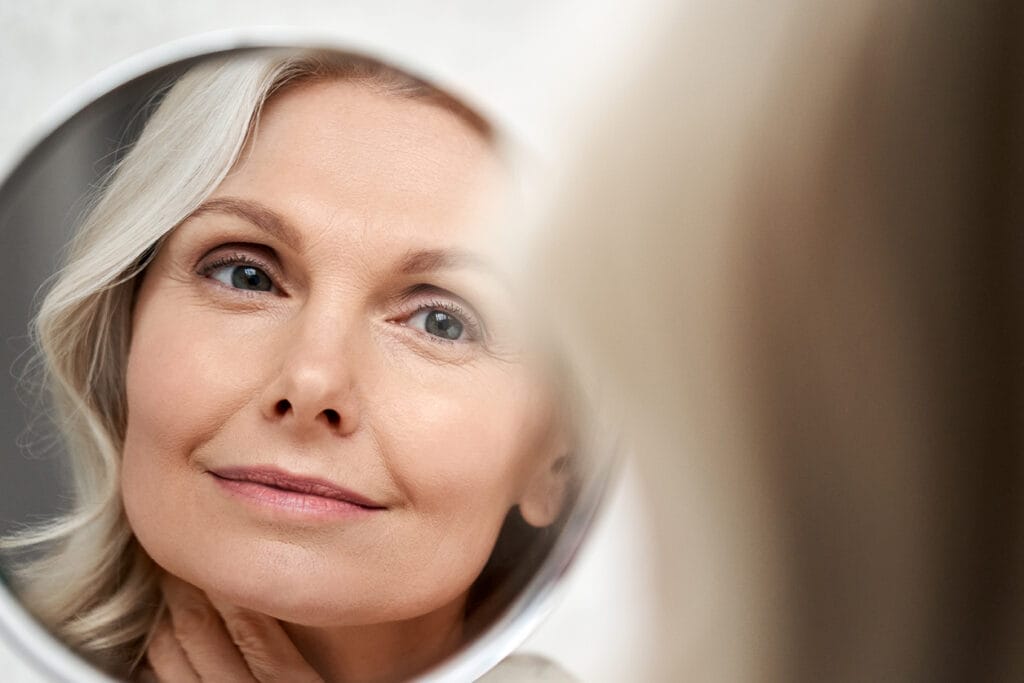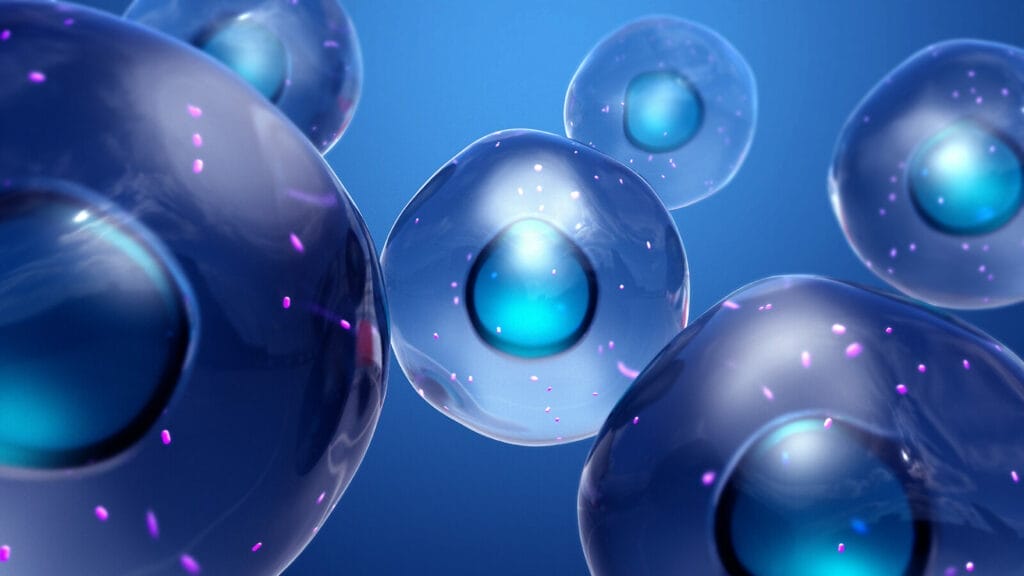Power up with CoQ10 – the anti-ageing nutrient
There are times when many of us would love to swap out our cellular batteries for newly powered ones, much like a traditional battery that we replace when it is worn out or starting to function sub-optimally. If only life was that simple! Generating cellular energy is the most crucial function in the human body, it is an inside job that is carried out by the mitochondria which are our cellular energy powerhouses. They play a role in maintaining cell survival, cell death, and metabolic homeostasis.[i]

Mitochondria
Mitochondria must function around the clock as our cells cannot store ATP and depend on oxygen, water, carbohydrates, and nutrients to carry out this vital role. Some cells contain a few mitochondria whereas others can contain thousands as some cells/organs are more energy-demanding such as the heart, brain and liver.
Producing cellular energy is a complex process as it involves many cellular mechanisms, one such mechanism is the electron transport chain (ETC) which occurs in the membrane of the mitochondria and is a highly active process and one that is dependent on nutrients such as CoQ10. [ii]
Our ETC is needed to transport high-energy electrons to produce ATP in the mitochondria membranes and CoQ10 is vital for this process. If we have low levels of this nutrient, we will experience low energy as one of our key roles is to accept and donate electrons along the ETC, a bit like cellular pass the parcel!
The mitochondria are particularly susceptible to nutrient deficiencies, toxins and oxidative damage. Naturally, lots of free radicals are produced in the production of ATP so we must ensure that we have enough nutrients and importantly antioxidants!!
When we consider supplements that support energy and mitochondrial function, B Vitamins and Magnesium more commonly spring to mind, and for good reason as they too are necessary for ATP production however, the vital role that CoQ10 plays in overall cellular health and function should not be overlooked.

What is CoQ10?
First discovered in 1940, and isolated from the mitochondria of beef heart, CoQ10 is a naturally occurring compound synthesized in the body which our cells depend on however, its production does decline with age!
It also acts as a powerful lipid (fat) antioxidant that is needed to protect our cellular membranes and lipoproteins from free radical damage. CoQ10 is also involved in the regeneration of Vitamin C and E which are very well-known antioxidants.[iii]
Due to our dependence on energy production and cellular protection, we may not always be able to produce enough CoQ10, thankfully we also find this compound in certain food sources such as oily fish, egg yolks, organ meats, broccoli, natto, nuts, seeds, butter and others.
We can also take in supplemental form such as CoQ10 (ubiquinol) especially when we have increased needs for energy production such as during periods of duress/stress, physical activity and where our diet may not deliver enough for us.
Depletion of CoQ10 can occur for other reasons than just ageing and inadequate dietary intake, medical drugs such as statins block the pathways that result in the production of CoQ10[iv]. Metformin is another common drug that is associated with CoQ10 depletion.
Taking a supplemental CoQ10 is not only associated with improved energy and physical performance, but it has also shown promising results for many other health conditions such as:[v]
- Periodontal disease
- Migraine prophylaxis
- PCOS
- Decreasing pain, fatigue, and morning tiredness associated with fibromyalgia.
- Cardiovascular health.
- Neurodegenerative diseases and more.
Ageing and CoQ10
There are many signs that point to possible low cellular levels of CoQ10 such as diminished energy, poor physical performance, inflammation, oxidative stress, neurodegenerative diseases, blood sugar imbalances, cancer, cardiovascular disorders, decline in mitochondrial function and more, all of which can all be associated with ageing[vi].
We also have the outward signs of ageing such as wrinkles and sagging skin, CoQ10 has been shown to reduce the appearance of these telltale signs which is why many anti-ageing creams contain CoQ10 as a popular ingredient.
Taking CoQ10 as an oral supplement has also shown to be effective in reducing wrinkles, and improving skin smoothness particularly around the eyes, mouth and lips where those telltale signs of ageing and oxidative stress often reveal themselves. Over a 12-week period taking a dose of 150mg per day was associated with a reduction in wrinkles compared to a placebo.[vii]
This vital vitamin-like compound not only fuels our cellular energy and vitality but also stands as a noteworthy defender against the natural ageing process. It can also offer support in countering the effects of premature ageing that can arise from stress, and/or poor lifestyle habits.
References
[i] Ni HM, Williams JA, Ding WX. Mitochondrial dynamics and mitochondrial quality control. Redox Biol. 2015;4:6-13. doi: 10.1016/j.redox.2014.11.006. Epub 2014 Nov 20. PMID: 25479550; PMCID: PMC4309858.
[ii] Pizzorno J. Mitochondria-Fundamental to Life and Health. Integr Med (Encinitas). 2014 Apr;13(2):8-15. PMID: 26770084; PMCID: PMC4684129.
[iii] Hargreaves I, Heaton RA, Mantle D. Disorders of Human Coenzyme Q10 Metabolism: An Overview. Int J Mol Sci. 2020 Sep 13;21(18):6695. doi: 10.3390/ijms21186695. PMID: 32933108; PMCID: PMC7555759.
[iv] https://www.ncbi.nlm.nih.gov/books/NBK531491/
[vi] López-Otín C, Blasco MA, Partridge L, Serrano M, Kroemer G. The hallmarks of aging. Cell. 2013 Jun 6;153(6):1194-217. doi: 10.1016/j.cell.2013.05.039. PMID: 23746838; PMCID: PMC3836174.
[vii] https://www.nutraingredients.com/Article/2016/09/09/CoQ10-may-improve-facial-wrinkles-RCT#







